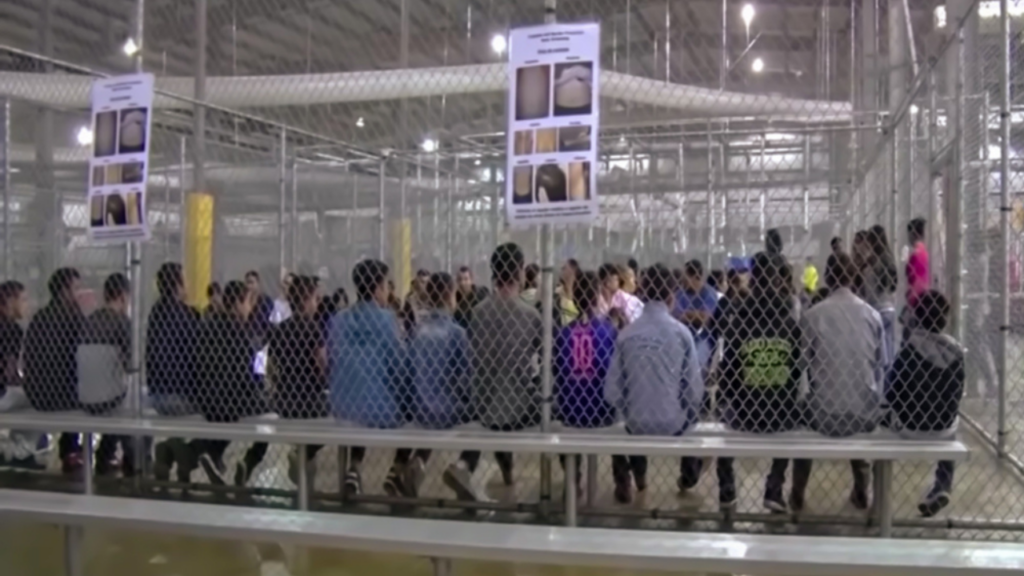On January 24, 2025, the Trump administration issued new guidance allowing federal immigration officials to bypass protections and potentially deport hundreds of thousands of migrants who entered the U.S. legally through Biden-era programs. This includes individuals who entered through a mobile app appointment system or under the Biden administration’s humanitarian parole program for migrants from countries like Cuba, Nicaragua, Venezuela, and Haiti. The new guidelines could affect over a million immigrants and prioritize rapid deportations, extending beyond the southern border to nationwide application. This directive also expands the fast-track deportation authority known as expedited removal and potentially revokes the parole status granted under Biden’s policies.
In addition to the nationwide expansion of expedited removal, the administration has intensified immigration enforcement in various states. For instance, in Boston, ICE officers have apprehended multiple individuals, including an irate Haitian alleged gang member with a recent list of 17 convictions. These operations are part of President Trump’s newly initiated mass deportation efforts, contrasting sharply with former President Biden’s immigration policies. ICE’s strategy involves targeting migrants with criminal records and has already resulted in over 300 arrests across several cities, including Denver, Philadelphia, and Miami. Border Czar Tom Homan forecasted increased ‘collateral’ arrests, as ICE is determined not to leave any undocumented migrants behind during their operations. The Trump administration is intensifying border security, including military deployments and blocking Border Patrol officers from releasing illegal migrants into the country, aiming to deport 700,000 illegal migrant criminals.
These policies have significant implications for Haitian immigrants, particularly those under Temporary Protected Status (TPS), the Biden administration’s humanitarian parole programs, and those who are undocumented. The new directives threaten over one million people who followed U.S. government rules when they entered the United States with summary deportation. The new Trump policy applies to migrants granted parole, including those offered access to U.S. government-backed humanitarian relief programs.
The expansion of expedited removal allows immigration officers to deport migrants without judicial hearings, aligning with the administration’s goal to remove all illegal immigrants from the U.S. Critics argue it risks mistakenly deporting individuals entitled to remain in the U.S.
The impact on Haitian communities is profound. In places like Springfield, Ohio, Haitian immigrants are anxious about Donald Trump’s return to the White House. Previously, Trump’s administration tried to end Temporary Protected Status (TPS) for Haitians in 2017, but the courts blocked it. However, this time, people believe the outcome could be different given his reshaping of the judiciary and recent legal developments. Fears have grown since Trump’s election in November, with some Haitians leaving Springfield due to the potential for deportation and increasing hostility, exacerbated by Trump’s false claims against immigrants. Community leader Gilbert Fortil remains hopeful and continues advocating for the community, despite concerns. Additionally, local health services anticipate reduced usage due to deportation fears, and public assistance approvals for Haitians have decreased. Nonetheless, the Haitian community tries to stay resilient amid these challenges.
The administration’s actions have also led to increased enforcement in various states. For example, in Newark, New Jersey, officials have criticized ICE for reportedly making illegal arrests at a local business, including detaining U.S. citizens and a person with military identification. Mayor Ras Baraka pledged to protect all city residents, highlighting the city’s significant Black and Hispanic populations. ICE defended the operation as targeted enforcement.
In New York State, approximately 670,000 undocumented residents, including 42,300 undocumented restaurant workers and 48,500 undocumented construction workers, face potential deportation under the new policies. Deportations would negatively impact key industries, such as agriculture, leading to potential closures of farms and increased costs of services like childcare and home care. Advocates argue that these policies would not only harm the economy but also disrupt communities and separate families.
Overall, the Trump administration’s new mass deportation policies represent a significant shift in U.S. immigration enforcement, with far-reaching consequences for Haitian immigrants and other communities across the nation.
